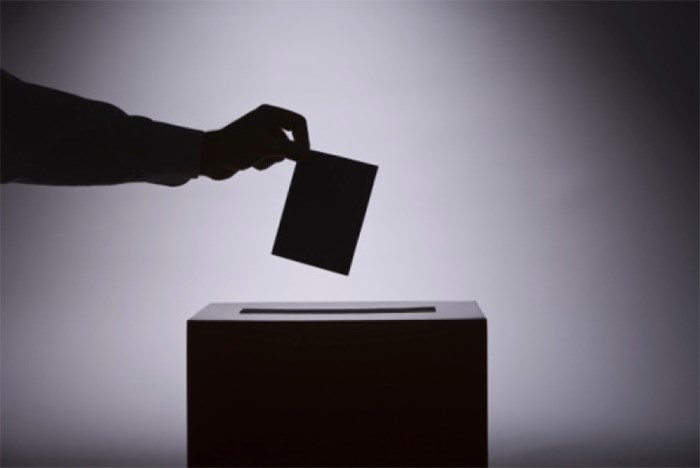One of the pervasive comments that stemmed from the 2018 municipal election in Ā鶹“«Ć½Ó³»was the daunting size of the ballot. Voters were asked to look at dozens of names for each office that was at stake, and then turn the paper over to express their views on three different initiatives.
 Ballot box/Shutterstock
Ballot box/Shutterstock
Four years ago, with a ballot that was significantly smaller, 43% of city of Ā鶹“«Ć½Ó³»voters said they wrote down a list with the candidates they wanted to support and took the list to the polling station to assist them in casting their ballot. In that election, candidates were still listed alphabetically.
In the Research Co. survey of Vancouverites who participated in this yearās election, the proportion of people who were aided by a list when voting increased dramatically to 65%. Men (68%), along with voters aged 35 to 54 (69%) and aged 55 and over (also 69%), were more likely to have written down some names before visiting their polling station.
Voter turnout was lower in Ā鶹“«Ć½Ó³»in 2018 than it was in 2014, leading some to suggest that the process was confusing for voters who bothered to show up and incomprehensible for those who decided to stay at home. There are several ways to address these complications. Some ideas are changing the guidelines for candidate registration, exploring the possibility of a ward system and the amalgamation of Ā鶹“«Ć½Ó³»with other Lower Mainland municipalities.
Let us look at registration first. Candidates who want to run for office in Ā鶹“«Ć½Ó³»now are required to present the signatures of 25 nominators and pay a $100 deposit, which is refunded after the election. The scenes of prospective contenders lining up in the final seconds are well documented, as is the pitiful practice of asking people nearby to sign nomination papers.
A few years ago, former city council candidate and fellow Glacier Media columnist Mike Klassen suggested establishing a higher threshold for people who seek office in the city. We put his ideas to Ā鶹“«Ć½Ó³»voters, and the level of support for some form of change is definitely high.
Among voters who cast a ballot in the 2018 Ā鶹“«Ć½Ó³»municipal election, three in four (76%) agree that the number of signatures required for a nomination should be raised to 100 from 25. There is strong support for this modification across the city, especially among those who voted for Non-Partisan Association mayoral candidate Ken Sim.
More than half of Ā鶹“«Ć½Ó³»voters (55%) would also like to see the deposit that candidates pay raised to $500 in future elections. The cash is refunded to candidates at the end of the democratic process. Placing a higher objective for prospective candidates could go a long way to ensuring that those who throw their hat into the ring āfor the fun of itā think twice about their actions.
In social media, the lowest vote-getters were the most likely to whine about a perceived lack of attention in this yearās campaign. The ability to come up with 25 signatures and $100 does not make a true mayoral contender, and the results at the end of the night proved it once again.
There has also been talk about abandoning the at-large system for council and moving to a ward system, where councillors can be elected in specific constituencies. At this point, a majority of Ā鶹“«Ć½Ó³»voters (52%) support the idea. This would greatly increase the chances of independent candidates, who would be able to target a specific area instead of attempting to knock on doors all over the city.
Finally, a third of Ā鶹“«Ć½Ó³»voters (34%) believe it would be worthwhile to explore the idea of amalgamating all of the municipalities in Metro Vancouver, as they did in Toronto or Montreal. Almost half (49%) disagree. Amalgamation is still a particularly contentious issue and one that will require plenty of discussion and several consenting councils.
In spite of all the efforts from the City of Ā鶹“«Ć½Ó³»and plenty of coverage from media outlets, voter turnout did not increase this year. The campaign was bewildering at times. British Columbians have said that the municipal government is the most influential in their daily lives, but the level of participation is not as high as what is typically observed for provincial or federal democratic processes.
The incoming city council in Ā鶹“«Ć½Ó³»has four years to decide whether a move to a ward system will please voters. It may also be time to stop pretending that the ability to gather 25 signatures and deposit $100 is enough to allow any person to have a shot at being elected. In the case of the mayoral election, a mishmash of comedic and inexcusably entitled candidates amounted to little more than noise.


